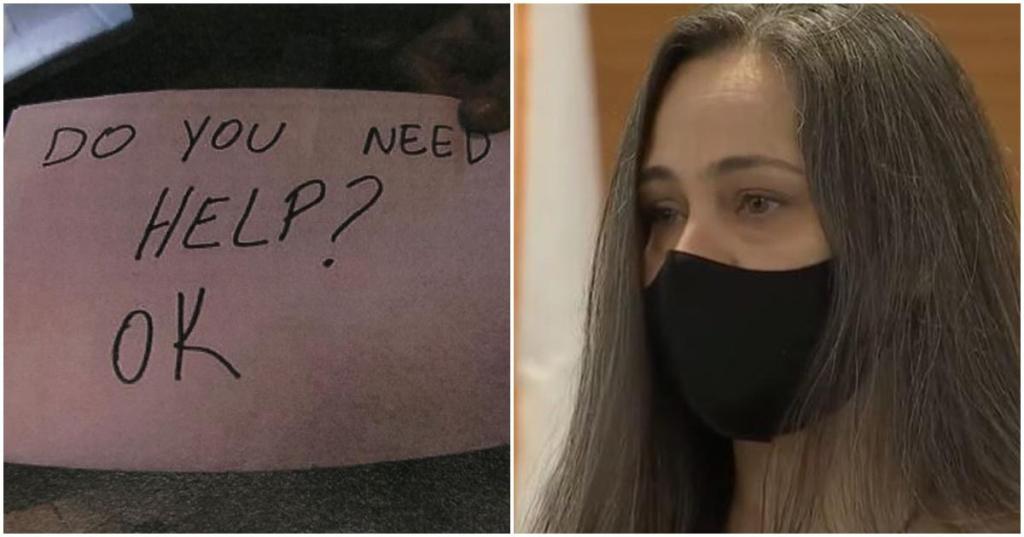Everyday acts of heroism and bravery aren’t always easy. They take quick-thinking, an ability to assess a dangerous situation, and courage to act on a gut instinct that might be wrong; or worse, might put you in danger. And then of course there’s the bystander effect, a theory in social psychology wherein individuals tell themselves that someone else will help, someone more qualified and prepared to handle this situation will step in.
To overcome our human nature, nerves, self-preservation, and psychology in order to step in to help is truly a remarkable feat. And yet it happens every day, and never fails to inspire us when such stories make headlines.
Server Flavaine Carvalho was waiting on her last table of the night at Mrs. Potatohead’s, a family restaurant in Orlando, Florida when she noticed something peculiar.
The parents of an 11-year-old boy were ordering food but told her that the child would be having his dinner later that night at home. She glanced at the boy who was wearing a hoodie, glasses, and a face mask and noticed a scratch between his eyes.
A closer look revealed a bruise on his temple.
So Carvalho walked away from the table and wrote a note that said, “Do you need help?” and showed it to the boy from an angle where his parents couldn’t see.

The boy shook his head, no. But the waitress didn’t give up, her gut was telling her something wasn’t right. “I knew it that he was afraid,” she said.
Her instincts were on the right track. Unexplained injuries on a child, and a parents’ attempt at hiding or disguising them, are a big red flag for child abuse.
Carvalho made two more attempts until the boy nodded yes.
The server then called the owner of the restaurant to let her know that she was going to call the police on the boy’s parents. It was a bold move with very little information to go on, but one that Carvalho knew was right in her heart. She knew she wouldn’t be able to live with herself if she didn’t speak up in that moment.
The police arrived and arrested the boy’s stepfather on one count of third-degree child abuse. His mother Kristen Swann was arrested with two counts of child neglect.
A four-year-old girl was later taken from the family by authorities. They say she showed no signs of abuse.
Detectives spoke with the boy and learned his parents frequently withheld food from him as a form of punishment. He was 20 pounds underweight. After searching his body, they discovered that he was nearly covered in bruises.
His father had recently beat him with a broomstick and back scratcher. The man, Timothy Lee Wilson, received a life sentence in 2022. The boy’s mother was also convicted on her charges of child neglect.

The boy told detectives that he was once hung upside down from his ankles in a door frame by his father and had been restrained by being strapped to a furniture dolly.
“To be honest what this child had gone through was torture,” Detective Erin Lawler said. “There was no justification for it in any realm of the world. I’m a mother and seeing what that 11-year-old had to go through, it shocks your soul.”
Carvalho’s quick thinking and bravery may have saved the lives of two children.
“This could have been a homicide situation if she had not have intervened,” Orlando Police Chief Orlando Rolon said.
“The lesson here for all of us is to recognize when we see something that isn’t right to act on it… This saved the life of a child,” he added.
The restaurant’s owner, Rafaela Cabede, hopes that Carvalho’s bravery inspires others to look out for signs of abuse as well. It’s so difficult and important for adults to understand the warning signs for child abuse, as it’s often difficult or impossible for children to speak up for themselves in these situations.

Visible bruises, withdrawn behavior, and limited contact with the outside world are key warning signals. With about one in seven U.S. children tragically suffering some form of abuse, all adults need to be on the lookout for the signs.
“We understand that this has to encourage other people that when you see something, say something,” Cabede said. “We know when we see a situation that is wrong, we know what’s the right thing to do. We know that speaking up is the right thing to do. But it takes more than acknowledging it. It takes courage.
This article originally appeared four years ago. It has been updated.




























